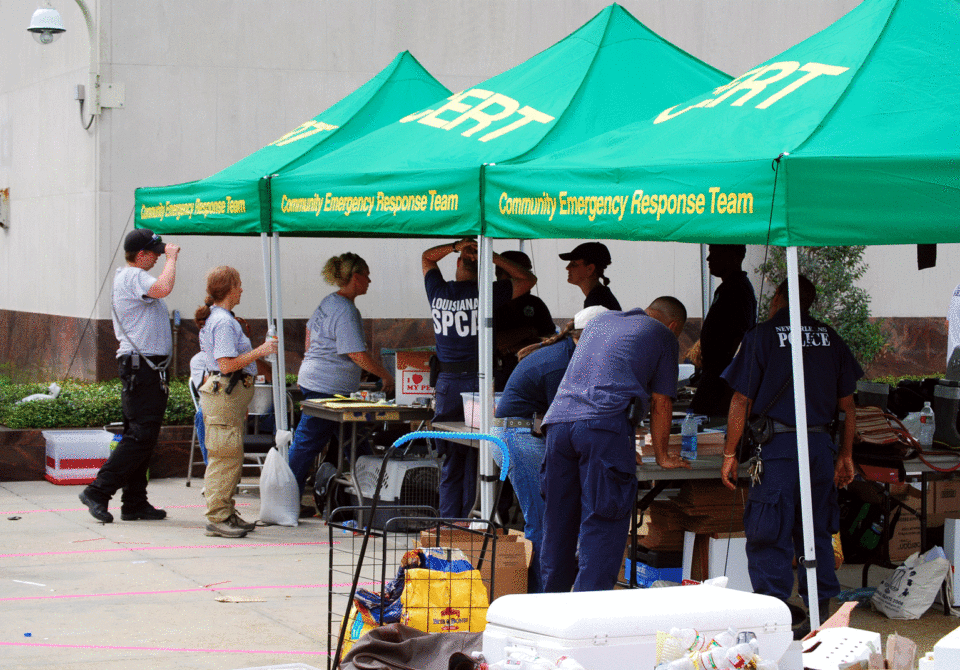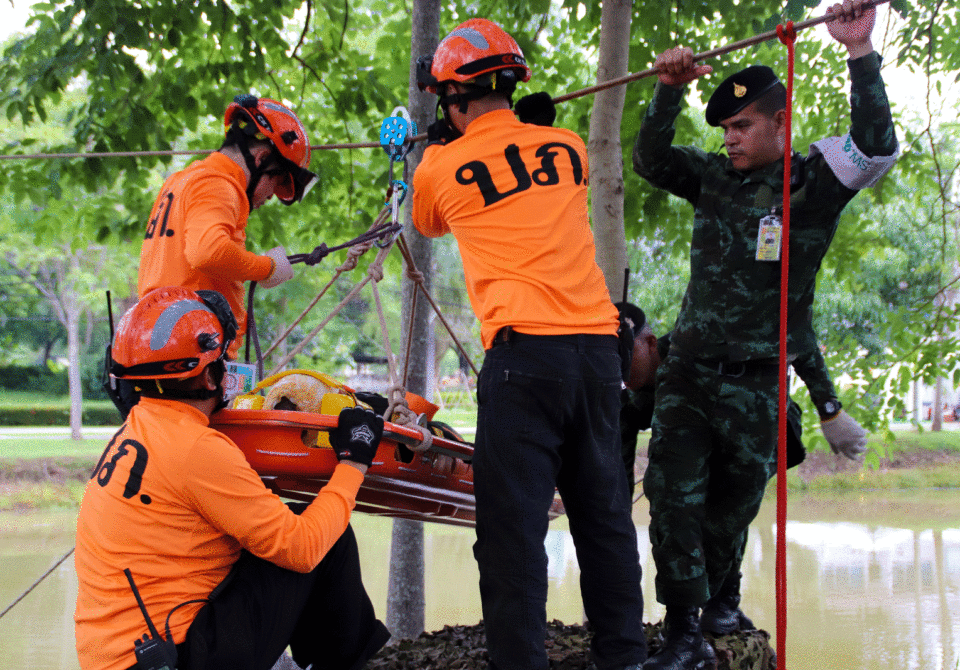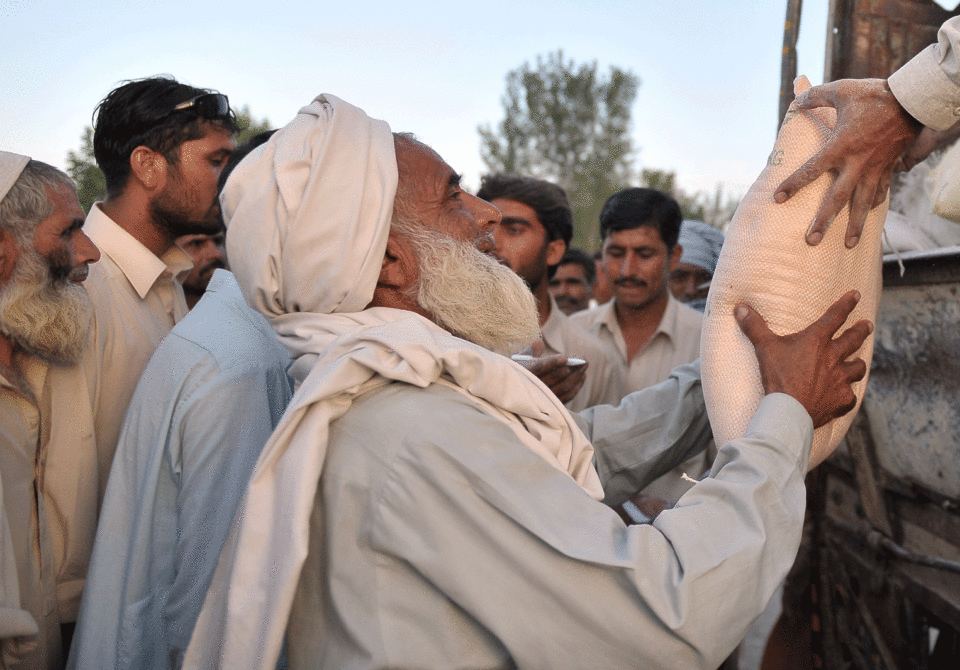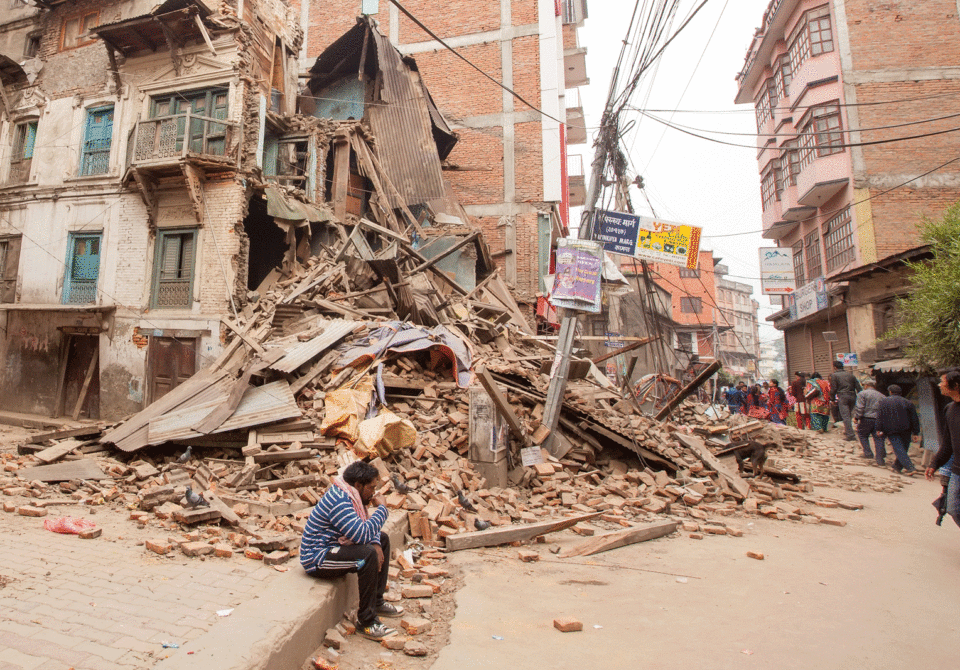Plusieurs défis en matière de réciprocité se posent dans le contexte de la recherche sur les risques et les catastrophes. Les questions suivantes devraient être prises en compte lors de l’élaboration de plans pour redonner.
La difficulté d’établir des relations dans les communautés récemment touchées par une catastrophe
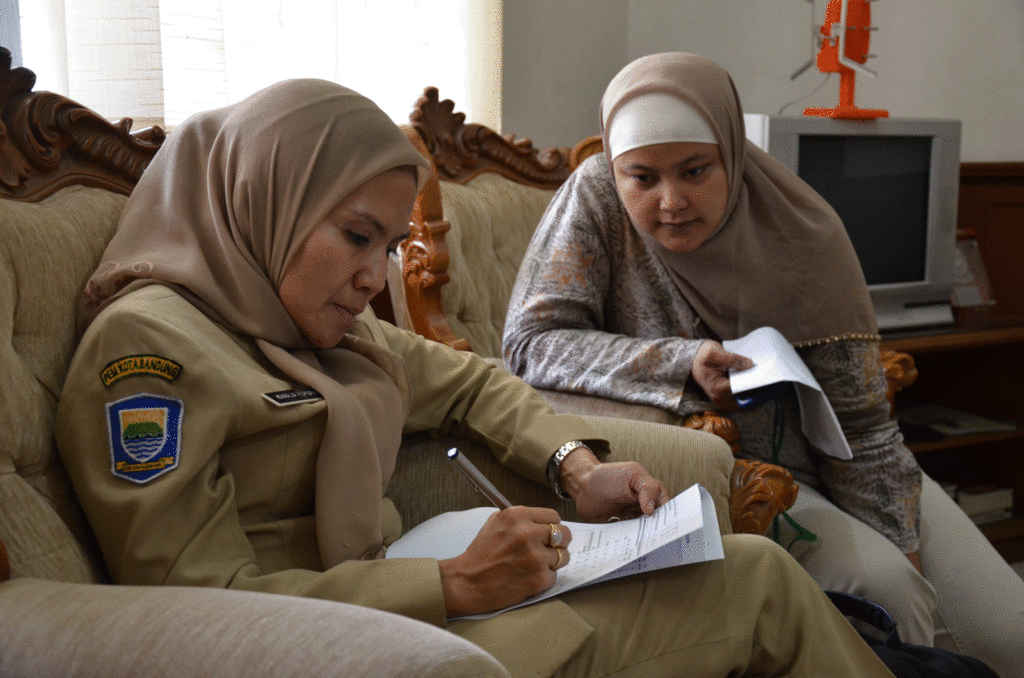
L’inclusion de dirigeants et de représentants communautaires dans la recherche tout au long du cycle de vie du projet, de la planification préalable à l’analyse des données, peut aider à faire en sorte que la recherche soit communautaire, collaborative et axée sur l’action.1 Cependant, immédiatement après une catastrophe, les dirigeants et les représentants communautaires peuvent être submergés par les activités d’intervention, les demandes d’assistance ou d’autres tâches émergentes. Par exemple, les équipes de recherche comptent généralement sur leurs homologues locaux pour les mettre en contact avec des sujets de recherche ou leur faire visiter. Ces homologues peuvent servir de premiers intervenants ou espérer recueillir leurs propres données. Ils peuvent également prendre soin de leurs proches ou se remettre sur pied si leur maison ou leurs biens ont été endommagés. Les chercheurs doivent être conscients du temps des partenaires communautaires et planifier la recherche en conséquence, même si la pleine mobilisation des membres de la communauté signifie qu’ils avancent à un rythme plus lent. L’établissement de relations dès le début du projet témoigne d’une détermination à maintenir un engagement éthique et peut aider les chercheurs à connaître les besoins de la communauté, ce qui leur permet de prendre de meilleures décisions quant à la façon de rendre la pareille. C’est idéal si les chercheurs peuvent établir des relations avec les communautés avant les périodes de crise aiguë.
Contraintes de temps
Lorsqu’ils planifient de redonner, les chercheurs doivent tenir compte non seulement de ce qu’ils peuvent se permettre de redonner en termes d’argent et d’autres ressources, mais aussi en termes de temps. De plus, les chercheurs doivent tenir compte des contraintes de temps des participants. Après une catastrophe, les gens peuvent avoir particulièrement peu de temps ou d’énergie – émotionnelle ou physique – à consacrer à la participation ou au soutien d’un projet de recherche.
Vulnérabilité accrue des survivants
Dans le travail humanitaire et les catastrophes, il existe souvent une dynamique de pouvoir inégale entre celui qui donne et celui qui reçoit la « générosité ».2 Cela est dû en partie aux niveaux élevés et changeants de vulnérabilité des survivants qui peuvent vivre un traumatisme ou se remettre d’une catastrophe. Recevoir de l’aide humanitaire ne devrait jamais dépendre de la participation d’une personne à la recherche, et il est important que cela soit explicite pour les participants potentiels.3 Par conséquent, encore une fois, il est important de se rappeler que la fourniture de l’aide humanitaire nécessaire ou vitale ne doit pas être considérée comme une forme de réciprocité pour les participants à la recherche. Les chercheurs devraient plutôt réfléchir attentivement à leurs propres obligations éthiques dans le contexte de la catastrophe et éventuellement élaborer un code de conduite qui tient compte de la vulnérabilité des survivants.4
Urgence perçue et données périssables

L’urgence perçue par les chercheurs de recueillir des données périssables immédiatement après une crise peut nuire à la réciprocité.5,6 Même s’ils agissent rapidement, les chercheurs devraient tout de même prévoir des moyens de s’engager dans la réciprocité avec la communauté locale. Fait important, « la possibilité de recueillir des données urgentes à la suite d’une catastrophe ne dispense pas le chercheur de l’obligation éthique de mobiliser la communauté étudiée à long terme » (p. 823).7
Recherche longitudinale et don au fil du temps
La recherche qui se déroule sur une plus longue période crée des considérations spéciales pour la réciprocité, car les relations avec les participants et le statut de membre du chercheur changent à mesure que le projet évolue.8 Browne et Peek discutent de la réciprocité dans le contexte des dilemmes éthiques dans le travail de terrain à long terme en cas de catastrophe, où les disparités perçues dans l’intervention et le rétablissement en cas de catastrophe peuvent causer des tensions parmi les participants à la recherche et compliquer les efforts des chercheurs pour redonner.9 Un autre dilemme peut découler de l’évolution des niveaux de vulnérabilité des personnes en situation de catastrophe au fil du temps. Certains auteurs avertissent que le fait de donner continuellement dans le cadre d’un projet à plus long terme peut amener les participants à dépendre du chercheur ou à lui demander davantage.10 Cependant, d’autres chercheurs ont signalé qu’ils n’avaient pas eu cette expérience. Par exemple, Fiorella, qui a payé à plusieurs reprises les soins médicaux d’urgence des membres de la communauté dans la petite zone rurale qu’elle a étudiée en Afrique subsaharienne, a déclaré que les membres de la communauté compatissaient à son dilemme et ne demandaient pas son aide pour leurs propres besoins médicaux.11
Redonner de façon disproportionnée
Dans le cadre de la réciprocité, les chercheurs devront peut-être décider s’ils doivent distribuer les cadeaux et d’autres formes de rémunération de manière égale ou uniquement en fonction des besoins.9 Dans leur étude sur le rétablissement après Katrina, Fothergill et Peek ont envoyé une carte d’anniversaire avec 5 $ à tous les enfants de leur étude pendant de nombreuses années après la catastrophe.12 En plus de cette forme de dons égaux, ils ont également donné de façon disproportionnée aux enfants et aux familles vivant dans la pauvreté. Dans de telles études à long terme, redonner peut entraîner des relations plus étroites avec les participants, ce qui peut, à son tour, rendre encore plus difficile la décision quant à la façon et le moment de donner de manière égale ou disproportionnée.8
La réflexion sur le contexte de la catastrophe aide les chercheurs à comprendre quelles approches de réciprocité peuvent être acceptables, attendues et appropriées. Compte tenu de la vulnérabilité accrue des survivants de catastrophes et de l’importance de fournir de l’espace pour les opérations d’intervention en cas de catastrophe, les chercheurs peuvent se poser les questions suivantes lorsqu’ils conçoivent des projets post-catastrophe.2,3
Pour avancer dans les diapositives ci-dessous, veuillez cliquer sur la flèche orange sur le côté droit de la diapositive. Sinon, les diapositives avanceront automatiquement après 25 secondes.
Questions à considérer pour la recherche post-catastrophe
-
1.Villarreal M. Best Practices for Ethical Post-Disaster Community Outreach and Engagement—CONVERGE Extreme Events Research Check Sheets Series. DesignSafe-CI. Published online 2020. doi:10.17603/ds2-zekm-9737
-
2.Brun C. A geographers’ imperative? Research and action in the aftermath of disaster. Geographical Journal. 2009;175(3). doi:10.1111/j.1475-4959.2009.00329.x
-
3.Louis-Charles HM, Howard R, Remy L, Nibbs F, Turner G. Ethical considerations for postdisaster fieldwork and data collection in the Caribbean. American Behavioral Scientist. 2020;64(8). doi:10.1177/0002764220938113
-
4.Gaillard J, Peek L. Disaster-zone research needs a code of conduct. Nature. 2019;575(7783):440-442. doi:10.1038/d41586-019-03534-z
-
5.Colwell RR, Machlis GE. Science During Crisis: Best Practices, Research Needs, and Policy Priorities.; 2019. https://www.amacad.org/publication/science-during-crisis/section/2#footnote1_8sidtyn
-
6.Science for Disaster Reduction Interagency Coordination Group. Integrating Science and Technology with Disaster Response.; 2021:34-52. https://www.sdr.gov/docs/SDR_Report_Integrating%20Science%20&%20Technology%20with%20Disaster%20Response.pdf
-
7.Mukherji A, Ganapati NE, Rahill G. Expecting the unexpected: Field research in post-disaster settings. Natural Hazards. 2014;73(2). doi:10.1007/s11069-014-1105-8
-
8.Huisman K. “Does this mean you’re not going to come visit me anymore?”: An inquiry into an ethics of reciprocity and positionality in feminist ethnographic research. Sociological Inquiry. 2008;78(3). doi:10.1111/j.1475-682X.2008.00244.x
-
9.Browne KE, Peek L. Beyond the IRB: An Ethical Toolkit for Long-Term Disaster Research. International Journal of Mass Emergencies and Disasters. 2014;32(1):82-120.
-
10.Adams J. The wrongs of reciprocity: Fieldwork among Chilean working-class women. Journal of Contemporary Ethnography. 1998;27(2). doi:10.1177/089124198027002003
-
11.Fiorella KJ. Interpersonal relationships in research: Balancing reciprocity and emergencies. Journal of Research Practice. 2014;10(2).
-
12.Fothergill A, Peek L. Children of Katrina. University of Texas Press; 2015. https://utpress.utexas.edu/books/fothergill-peek-children-of-katrina
-
13.Tierney K. Disasters: A Sociological Approach. John Wiley & Sons; 2019.
-
14.Mohammad L, Peek L. Exposure outliers: Children, mothers, and cumulative disaster exposure in Louisiana. Journal of Family Strengths. 2019;9(1). https://digitalcommons.library.tmc.edu/jfs/vol19/iss1/4

